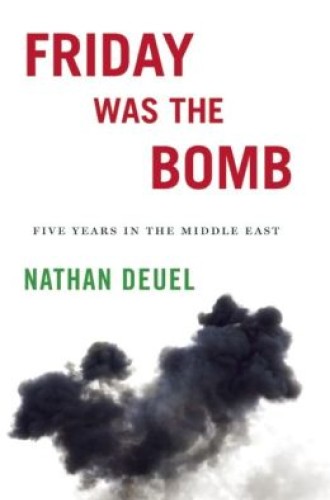Friday Was the Bomb, by Nathan Deuel
On Friday, October 19, 2012, a car bomb rocked central Beirut, killing a Lebanese intelligence official and two other people while injuring scores more. Against the background of a presidential campaign and the approach of Hurricane Sandy, the story faded almost instantly from the awareness of even well-informed Americans. But it was a watershed for the once relatively peaceful city now on the doorstep of Syria’s civil war, and it is the defining event in Nathan Deuel’s collection of essays Friday Was the Bomb.
Deuel—a writer and the husband of NPR correspondent Kelly McEvers (as well as, I should note, a college friend of mine)—had bid farewell to a friend and fellow ex-pat when the bomb went off near where they’d just had lunch and near where the friend’s family resides. Though Deuel and McEvers had lived for years amid the death and destruction in Riyadh, Baghdad, and Istanbul and had welcomed the birth of their daughter while living in the Middle East, the bomb jolted their family. The community of journalists, NGO staff, and internationally mobile Lebanese who had devoted themselves and sometimes risked their lives to tell the story of the Syrian war were shaken. “What had been a low boil of panic,” Deuel writes in the book’s title essay, “becomes an all-out grease fire.”
Friday Was the Bomb shows us things few readers will have seen or guessed at. Through stories of fatherhood, of the vocation of reporting, of the distance between home and abroad, and of the small and great rips in social fabric created by the constant threat of violence, Deuel takes us to places that are familiar and yet unknown.





